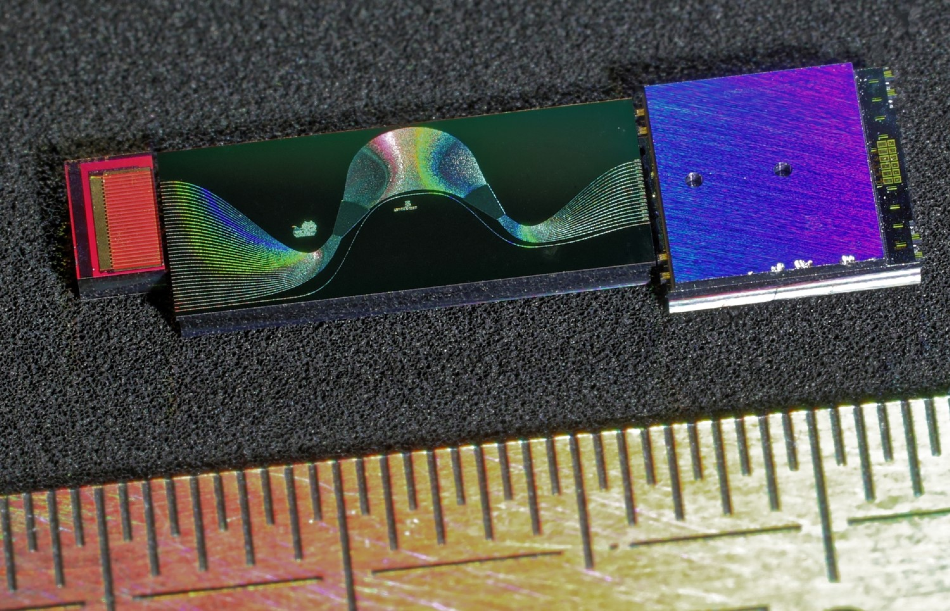Leti, an institute of CEA-Tech, has developed a photoacoustic spectroscopy technology for monitoring dangerous chemical emissions and traces of gas that could reduce the cost and the size these systems by a factor of 10 or more compared to existing tools.

To be presented in an invited paper at Photonics West 2020 titled “Micro PA detector: pushing the limits of mid-IR photoacoustic spectroscopy integrated on silicon”, the detector also provides high immunity to external noise and high sensitivity and selectivity.
Photoacoustic (PA) spectroscopy is one of the most sensitive techniques available for monitoring dangerous chemical emissions and traces of gas. Coupled with cascade lasers, this technology is used in a large number of application fields, from industrial control to emission monitoring and biomedical analyses. But mass production and widespread use of such systems will require smaller footprints and lower manufacturing costs.
Over the past six years, CEA-Leti has developed different versions of miniaturized photoacoustic cells and demonstrated the detection of gas traces with a tiny silicon based-PA cell. One drawback, however, was that this system relied on commercial MEMS microphones. Even if these components are reliable and meet some performance requirements, they are not dedicated to photoacoustic gas detection, or easily integrated into a fabrication process flow.
CEA-Leti’s new microPA technology combines a fully integrated MEMS microphone and mid-infrared photonics built by stacking two 200 mm Si wafers. A sensor wafer includes the microphone made of a MEMS mechanical diaphragm and nanometric piezoresistive gauges together with capillaries and fluidic ports. The second wafer, a cap wafer, includes the PA cell, the expansion volume, SiGe waveguides guiding the light into the PA cell, and electric contacts.
“The specific design of the PA cell allows increased immunity to external noise and to the variation of measurement conditions,” said Jean-Guillaume Coutard, the lead author of the paper. “This result stems from CEA-Leti’s proprietary technology for the microphone fabrication and it opens the way for the integration of these devices into portable detection devices.”
Silicon photonics leverages the advantages of high-performance CMOS technology, providing low-cost mass manufacturing, high-fidelity reproduction of designs, and access to high-refractive index contrasts that enable high-performance nanophotonics.
CEA-Leti’s microPA technology builds on the EU-sponsored REDFINCH project, a consortium of eight partners that are using photonic components at mid-infrared wavelengths to develop compact chemical sensors for both gas and liquid applications. Specific targeted applications include process gas analysis in refineries, gas leak detection in petrochemical plants, and milk-protein analysis for the dairy industry. CEA-Leti is coordinating that project.